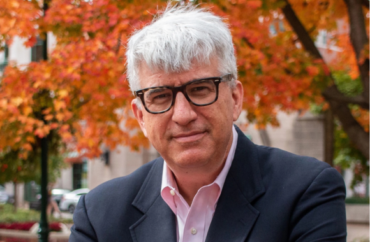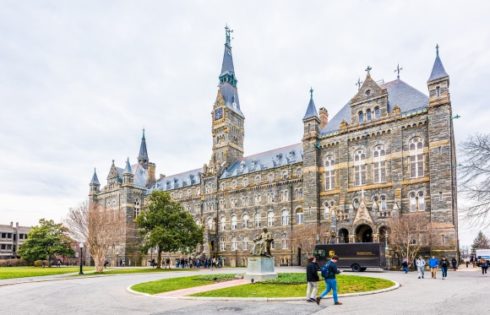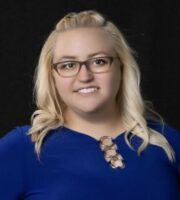
Says he hopes ‘this Thanksgiving’ people will ‘overcome self-censorship’
An Indiana University journalism professor is studying the extent of self-censorship in higher education and broader society. Professor James Shanahan will also look at the role social media plays in self-censorship.
He and his colleagues first created the Willingness to Self-Censor scale in 2005. Shanahan also wrote a textbook titled “Media Effects: a Narrative Perspective.” Scholars have cited Shanahan’s research 16,000 times, according to Google Scholar.
Shanahan is currently a fellow at Heterodox Academy’s Segal Center for Academic Pluralism.
“[The scale] is intended to provide a valid psychometric assessment of how much an individual is likely to express an opinion, when we perceive that others will disagree with that opinion,” Shanahan (pictured) said in an email interview with The Fix.
Shanahan is tapping into what he says should be a breeding ground for the respectful debate of ideas. In an article on his website he explained that higher education has unfortunately become an environment one fears of being canceled while in.
“What is more concerning is that there are situations where we really want people to feel comfortable to explore issues, and of course the university is a prime place for that,” he told The Fix. “Ideally, it is a place to train people who disagree to put issue positions up against each other, overcoming some of the natural barriers we have against that.”
Multiple surveys in the past several years have suggested both students and faculty are self-censoring. For example, a 2024 report from Heterodox Academy found college students are reluctant to share their views on topics including abortion and Israel, The Fix previously reported.
A 2023 study on “taboos” in psychology found professors are shying away from taking certain stances on race and sex issues. Conservatives are more likely to self-censor, the study found, as previously reported by The Fix.
MORE: Johns Hopkins abortion activist screams at pro-lifers, rips display
Shanahan is also a member of the Bloomington university’s Observatory on Social Media where he studies the effects of social media on someone’s willingness to share their opinions.
“Media coverage of [an] issue would be a major way for people to ‘know’ about what others think, so that has to play a role as well. Now we have social media complicating the picture of what we “know,” so that will be an ongoing research question as well,” Shanahan said.
However, Shanahan said he is hopeful that as society evolves with the use of social media, it will adapt to these effects.
“Optimistically, I think people can learn to be a little less afraid of what negative consequences might come from social media, as we learn to live with it,” Shanahan said.
Now that the 2024 presidential election has come and gone, Shanahan encourages families to take initiative and not censor themselves when it comes to those all-too-familiar table talks–with a caveat.
“Post-election, maybe this Thanksgiving will be an interesting site for people to overcome self-censorship,” he said. “At their own risk of course.”
MORE: Trump taps Linda McMahon for education secretary
IMAGE: Indiana University
Like The College Fix on Facebook / Follow us on Twitter






Please join the conversation about our stories on Facebook, Twitter, Instagram, Reddit, MeWe, Rumble, Gab, Minds and Gettr.